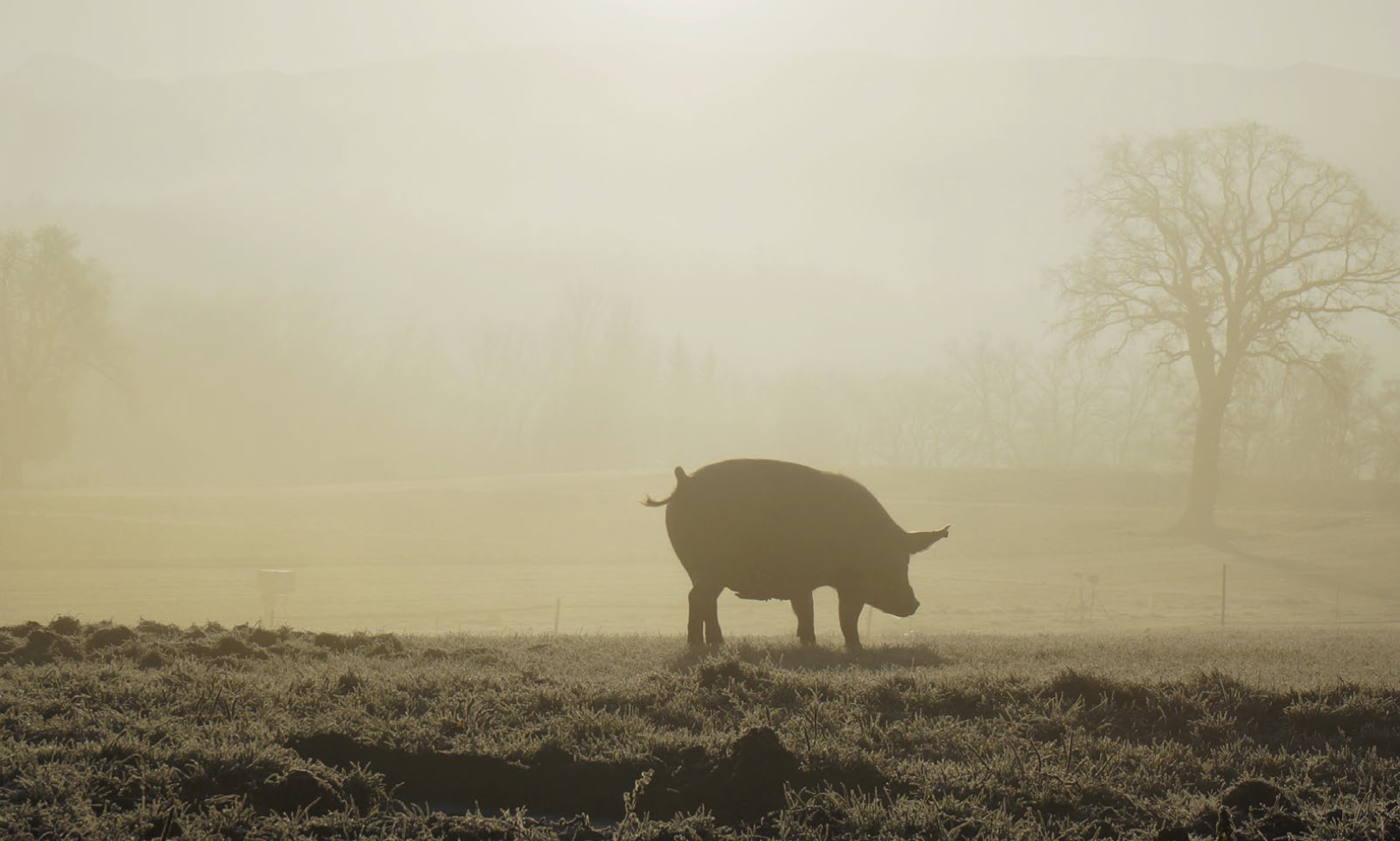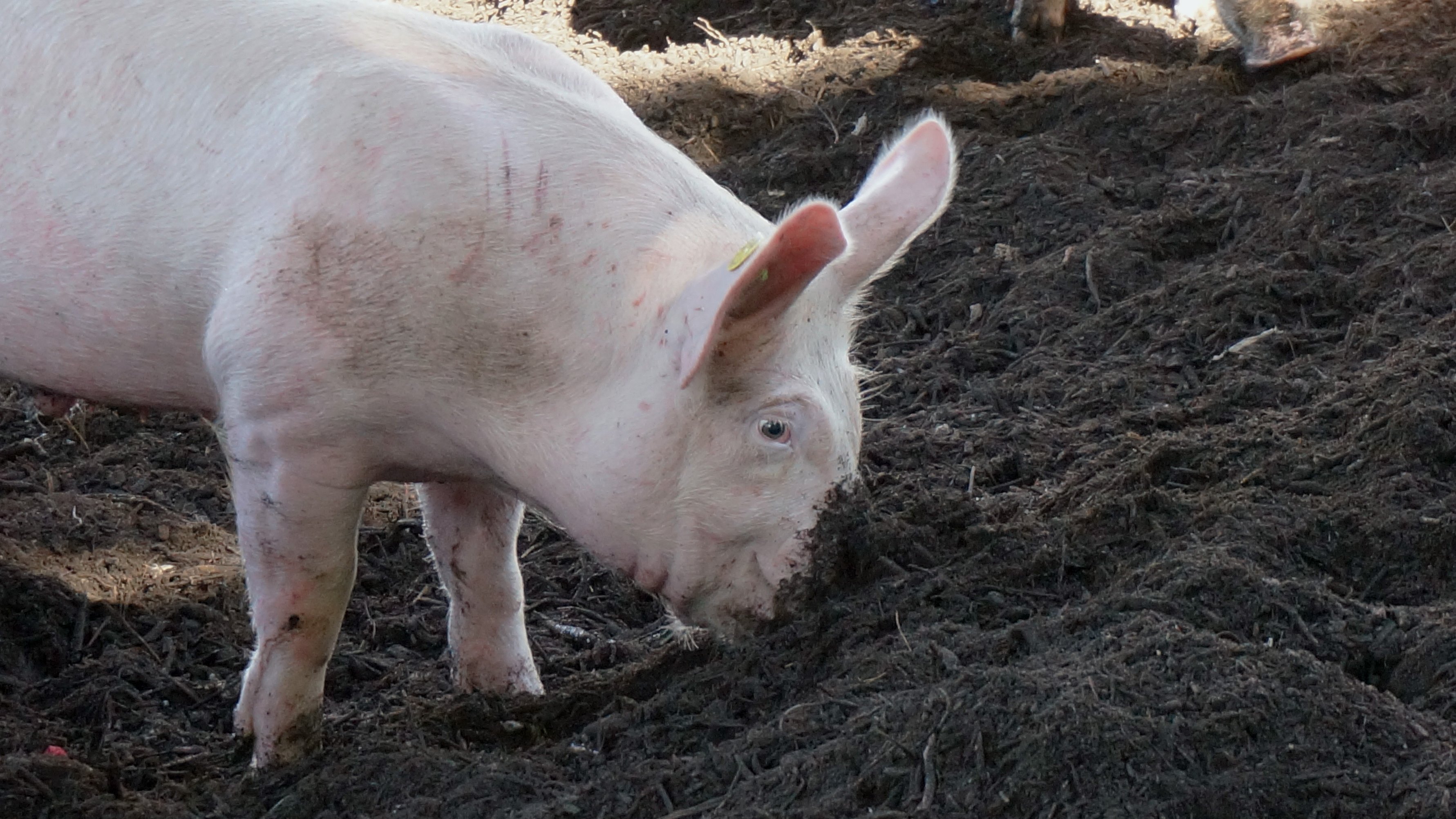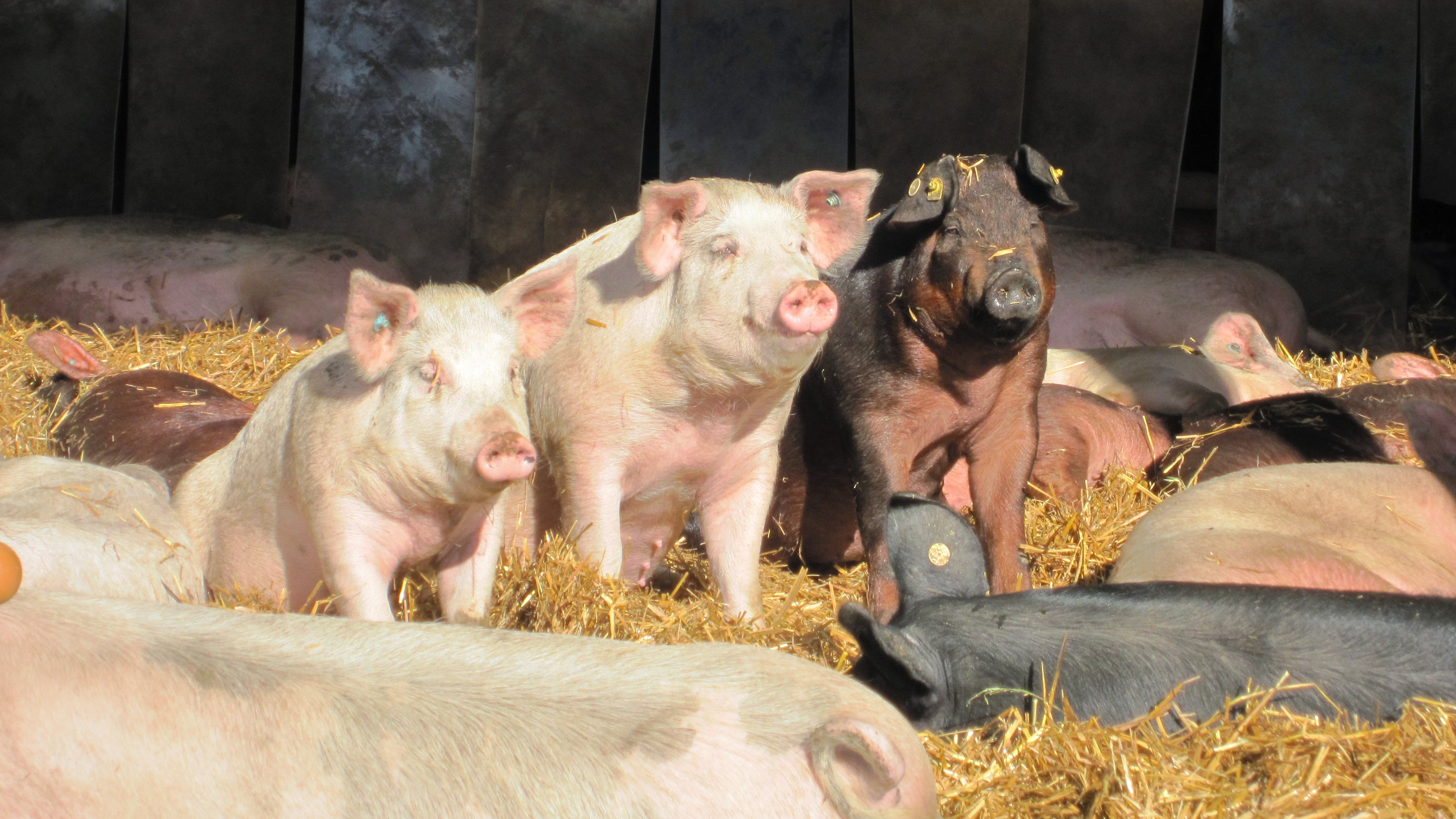New handbook summarizes the results of the POWER project
Researchers and organic pig producers from eight European countries have developed measures that aim to increase animal health and welfare of organic pigs while reducing the environmental footprint of the farming systems.



The handbook "Welfare and environmental impact of organic pig production" provides a toolbox of knowledge-based strategies within four focus areas:
- Designing and managing concrete outdoor areas
Six measures aiming to provide growing pigs with a stimuli-rich environment while reducing the risk of emissions are presented. For each tool, the legal framework is summarized. Additionally, it’s impact on animal welfare and the environment is evaluated. - Management strategies to improve pig health, survival and performance before and after weaning
The presented tools range from designing and managing of the piglets’ nest, breeding strategies and supplements to extended lactation. For each tool, the legal framework is summarized. Additionally, it’s impact on animal welfare and environment is evaluated. See video: https://www.youtube.com/watch?v=2Zo0yjAHkJU - Animal welfare, environmental impact and productivity of combined housing and pasture systems
Best practices and innovative examples from across Europe are presented to inspire and facilitate the continuous development of an economically competitive production which meets the principles of organic farming. See video: https://www.youtube.com/watch?v=RiGhwu-N6xo - System resilience and sustainability aspects in organic pig production
Economic, environmental, institutional or social challenges test the resilience of organic pig producers. Assessed resilience strategies of selected best practice and innovative farms provide insight on how they cope with external shocks.
The handbook “Welfare and environmental impact of organic pig production” is available for download at https://www.fibl.org/fileadmin/documents/shop/1300-hb-power-en.pdf.
Relevant links
https://www.fibl.org/de/shop/1300-hb-power-en
https://projects.au.dk/coreorganiccofund/core-organic-cofund-projects/power%0D
https://orgprints.org/view/projects/POWER.html
Authors
Barbara Früh (FiBL, CH), Heidi M-L Andersen (AU-AGRO, DK), Lisa Baldinger (TI-OL, DE), Linnea Bark (RISE, SE), Davide Bochicchio (CREA-ZA, IT), Laurianne Canario (INRAE, FR), Rennie Eppenstein (FiBL, CH), Katharina Heidbüchel (TI-OL, DE), Mirjam Holinger (FiBL, CH), Anna Jenni (FiBL, CH), Maximilian Knoll (FiBL, CH), Christine Leeb (BOKU, AT), Elodie Merlot (INRAE, FR), Simon Moakes (FiBL, CH), Armelle Prunier (INRAE, FR), Eva Salomon (RISE, SE), Rikke Thomsen (CFF, DK), Herman Vermeer (WUR, NL), Lotten Wahlund (RISE, SE), C cilia Wimmler (BOKU, AT), Anne Grete Kongsted (AU-AGRO, DK)
Contact
Barbara Früh (FiBL, CH)
Barbara.frueh@fibl.org
Editor: Karin Ullven, EPOK / Design: Christine Dilling, ICROFS
